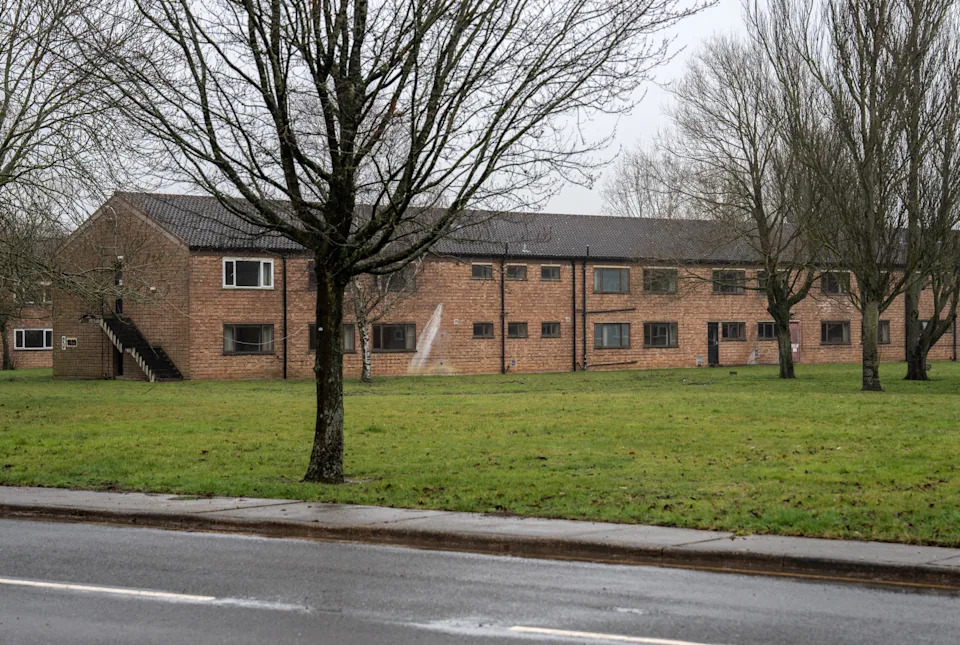A landmark court judgment that has temporarily blocked asylum seekers from being housed at a hotel in Essex has left many councils considering similar court actions.
On Tuesday (19 August) the High Court granted Epping Forest District Council an interim injunction to block asylum seekers from being housed at The Bell Hotel.
The judge in the case ruled in favour of the council when it argued the hotel had become a public safety risk and had breached planning law. The hotel must stop housing asylum seekers by 4pm on 12 September.
In response Broxbourne Council in Hertfordshire said it was taking legal advice “as a matter of urgency” to perhaps take similar legal action.
And Reform UK has stated that all 12 councils controlled by the party will “do everything in their power to follow Epping’s lead”, according to leader Nigel Farage.
Why does this matter?
The injunction poses a huge problem for the UK government who may now battle the court decision at the Court of Appeal and face the prospect of rehousing thousands.
Home Office lawyers had argued during the hearing that the case had a “substantial impact” on the Home Secretary, Yvette Cooper, in performing her legal duties to asylum seekers.
The Labour government’s attempt to delay the application was rejected by Mr Justice Eyre.

Home Office data reveals the Number of people claiming asylum in the UK, years ending December 2002 to March 2025. (The Home Office)
The Bell Hotel has become the focus of ongoing protests in recent weeks following allegations involving individuals residing there under the asylum system.
The demonstrations began after Hadush Gerberslasie Kebatu, an asylum seeker staying at the hotel, was charged with the sexual assault of a 14-year-old girl. He has denied these charges.
In a separate case, another resident of the hotel, Syrian national Mohammed Sharwarq, has been charged with seven offences, which he denies.
Additionally, several other men have been charged in connection with disorder that took place outside the premises.
How many asylum seekers are placed in hotels?
Since around 2020, there has been increased use of hotels for contingency asylum accommodation.
The rise has been attributed to several factors, such as the impacts of the Covid-19 pandemic and subsequent public health measures; an increase in the number of migrants crossing the Channel in small boats; and a backlog in unresolved asylum cases.
Home Office data states that a total of 109,343 people claimed asylum in the UK in the year ending March 2025.
This was 17% more than in the year ending March 2024 and 6% more than the previous peak of 103,081 in 2002.
The Migration Observatory, an independent research project focused on analysing migration and migrants in the UK, said that at the end of March there were 32,345 asylum seekers in hotels.
This represents 30% of all supported asylum seekers in this period and has dropped from 34,530 last year and 47,518 in 2023.
The peak number of asylum seekers housed was 56,042 at the end of September 2023.
The majority of asylum seekers being housed in hotels are in London. In March 12,024 60% of asylum seekers living in hotels, were housed in the capital.
A written parliamentary response in February 2025 confirmed 218 hotels were being used to house asylum seekers, with seven due to close in April.
How much does it cost?
Analysis by the Migration Observatory across 2024-25 states the average daily cost of housing an asylum seeker in a hotel was estimated to be £170 per person.
This has decreased slightly in the financial year 2024/25 falling from the equivalent of £176 per person last year.
The three-month average nightly rate in asylum hotels has also declined from £162 in April 2024 to £119 in March 2025, as the number of hotels being used also dropping.
This reduction in cost is likely due to several factors, including the Home Office closing some hotels, accommodating more people in each hotel, implementing room-sharing policies, and possibly choosing hotels with cheaper nightly rates.
The cost of using a hotel is more than six times more expensive than using other types of accommodation, with a rate of £27 being the average for other types of accommodation.
When you multiply the three-month average rate of £119 per night, by the number of housed asylum seekers, it costs the UK government around £3,849,055 per night.
Arguing for the Bell Hotels owner’s Somani Hotels, Piers Riley-Smith, said during the court hearing that asylum seekers a “financial lifeline” to the hotel.
He added it was only 1% full in August 2022, when it was open to paying customers.
Why hotel court ruling creates such a problem
The Home Office has been attempting to come to grips with a growing number of asylum seekers attempting to find alternatives to costly hotels.
Labour has said it plans to empty the hotels housing asylum seekers by 2029, although some contracts run beyond this.
The judge ruled against Somani Hotels, after Epping Forest District Council cited alleged breaches of planning laws.
The government will likely challenge the decision, as they did on Tuesday, believing the ruling “substantially impact” the government’s ability to house asylum seekers.
If other local councils follow Epping’s lead, and are successful, this could mean the mass rehousing of thousands of migrants.
Dan Jarvis, Minister of State for Security, said Labour has “never thought that hotels were an appropriate source of accommodation for asylum seekers” and the government was looking at “alternative accommodation arrangements”.
In June, a Home Affairs Committee heard how the government was looking at buying tower blocks and former student accommodation to house migrants.
Another possible alternative is for the government to house asylum seekers in flats or houses that have been rented from private landlords or social housing providers.
These plans can be resisted locally, as when in October this year more than 1,000 people protested in Waterlooville, Hampshire, when plans were announced accommodate 35 families in flats above shops.
The removal of migrants from hotels to private accommodation is likely to save the UK government money, as hotels are the most expensive way to house asylum seekers.
This would also mean many would be relocated to housing in “cheaper areas” of the UK, according to former Conservative MP Damian Green, who served as a minster under Theresa May.

Accommodation blocks are pictured at MDP Wethersfield, a former Royal Air Force base. (Getty)
Subsequent governments have failed to establish large accommodation sites in buildings such as disused military barracks.
One site, Wethersfield, a former Ministry of Defence site in Braintree, Essex, may increase its capacity to house single adult male asylum seekers.
But creating large-scale sites like this can be costly. In 2024, the National Audit Office (NAO), published a report which revealed the initial set-up costs for Wethersfield were initially estimated at about £5m, but had ballooned to around £49m.
Mr Green said the government should use purpose-built housing, like the Nightingale hospitals used during Covid to “toughen up” the accommodation to use as a deterrent so as not seen as “offensively luxurious”.
In 2022 the Conservative government said it would use “large sites”, such as former military facilities, barges, ferries, and cruise ships.
One such site was The Bibby Stockholm, a converted barge moored in Dorset which was subsequently decommissioned by the Labour government in November 2024 amid safety concerns.
The barge, which provided accommodation for up to 400 single male asylum seekers a night at maximum occupancy, had cost the taxpayer at least £34.8m, according to the National Audit Office.
Another site that could be adapted for use is the Napier Barracks in Kent, which is set to be closed in September 2025.
In June 2021 it was found that the site provided inadequate accommodation for asylum seekers, that the Home Office’s process for selecting people to be accommodated at the Barracks was flawed and unlawful, and that residents of Napier Barracks were unlawfully detained.
